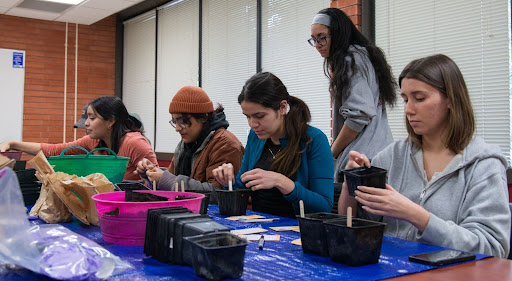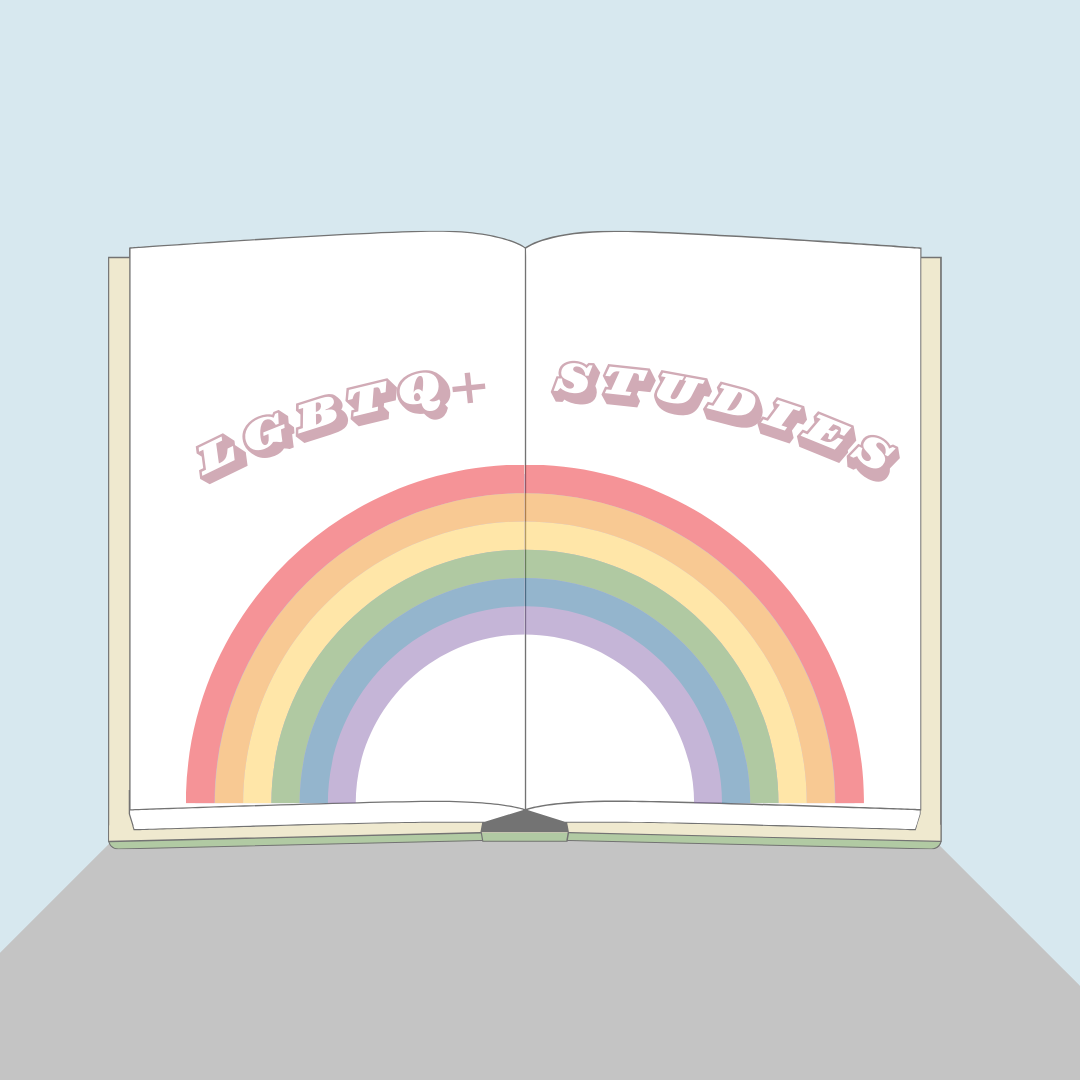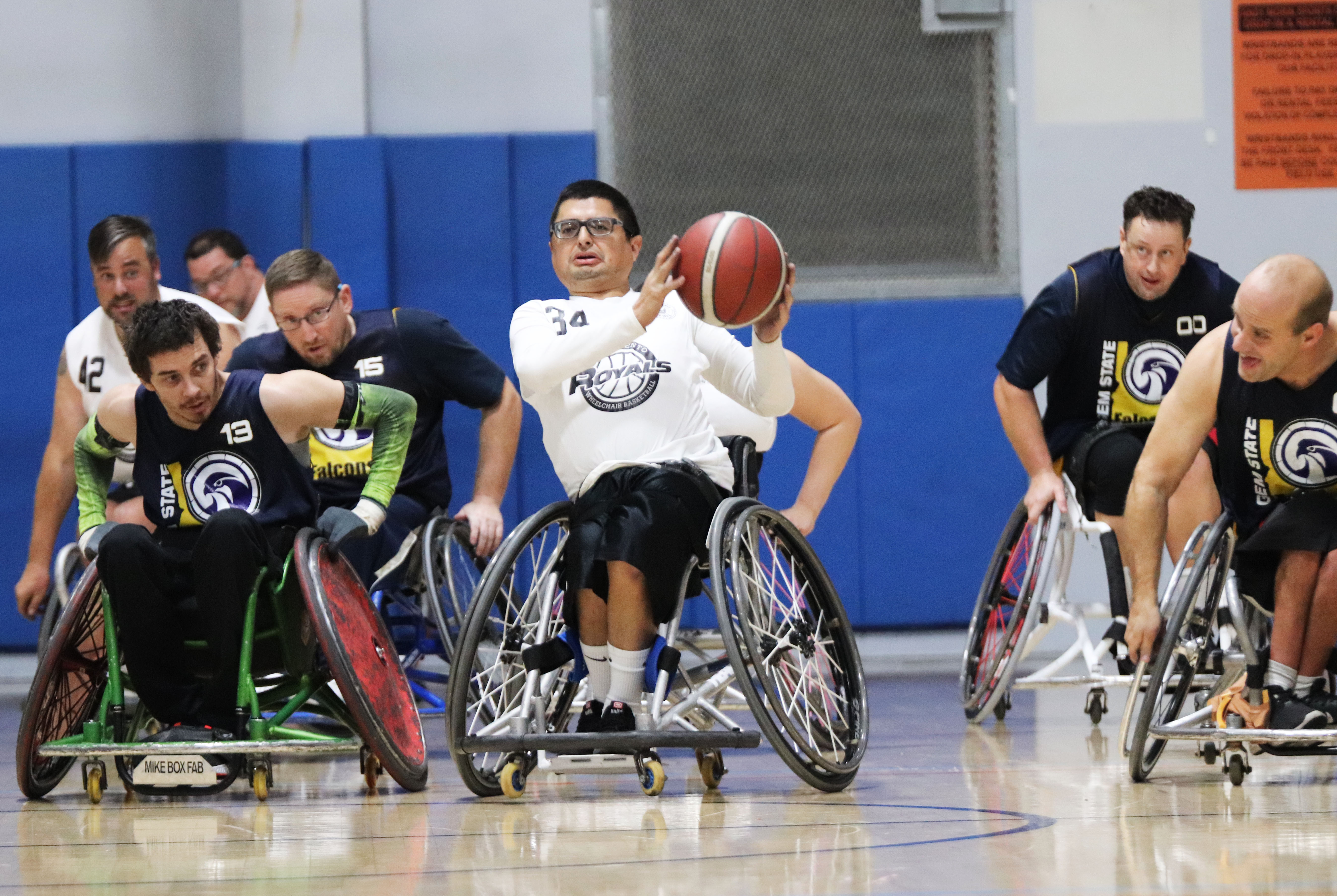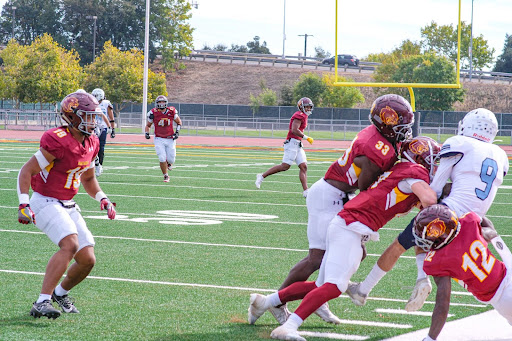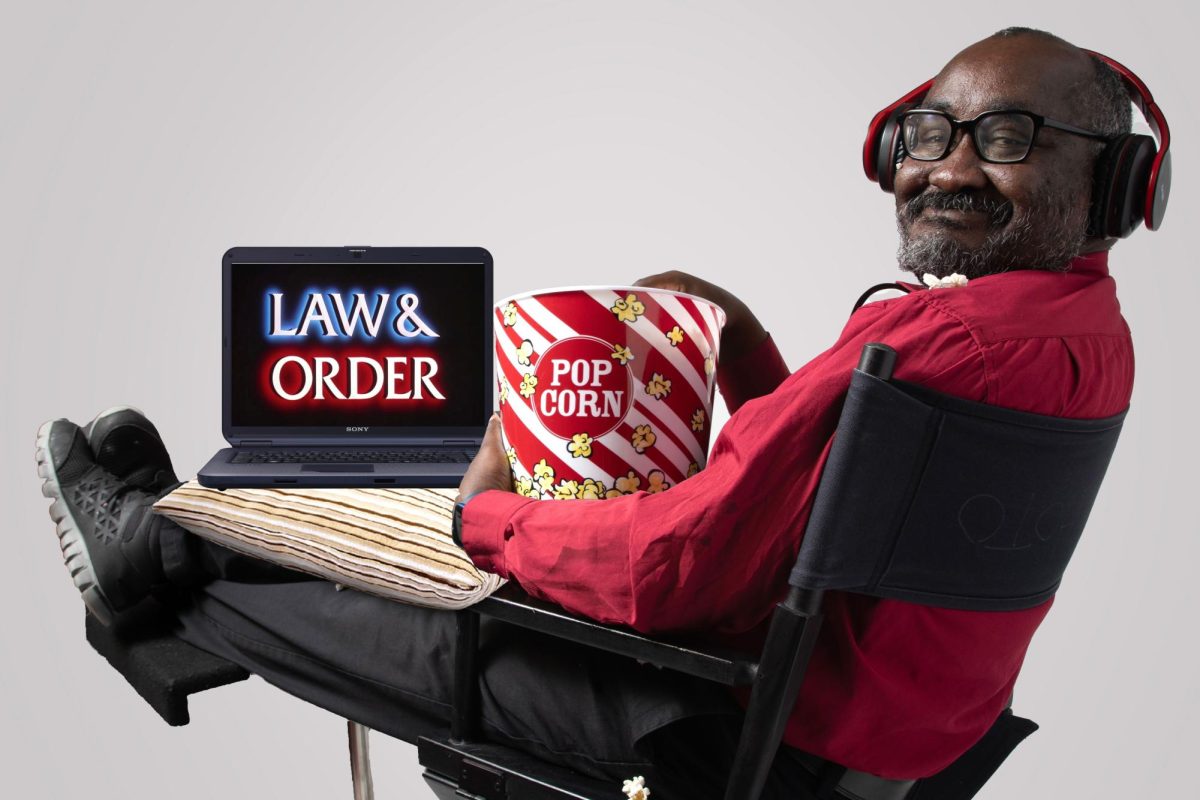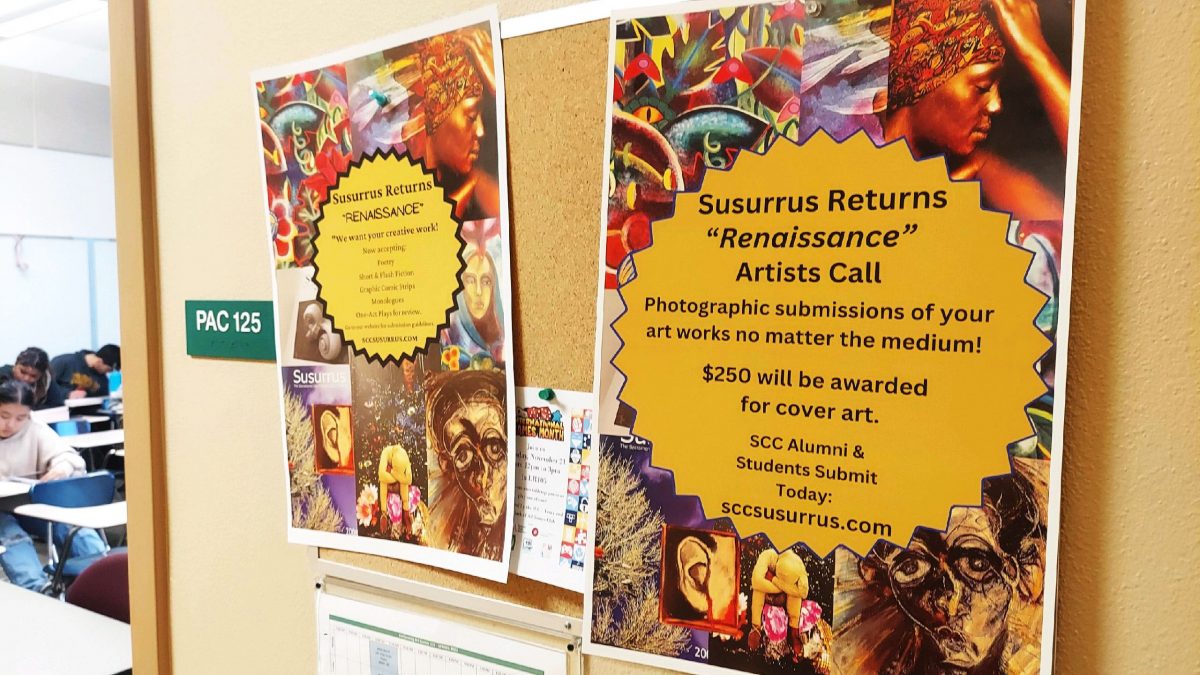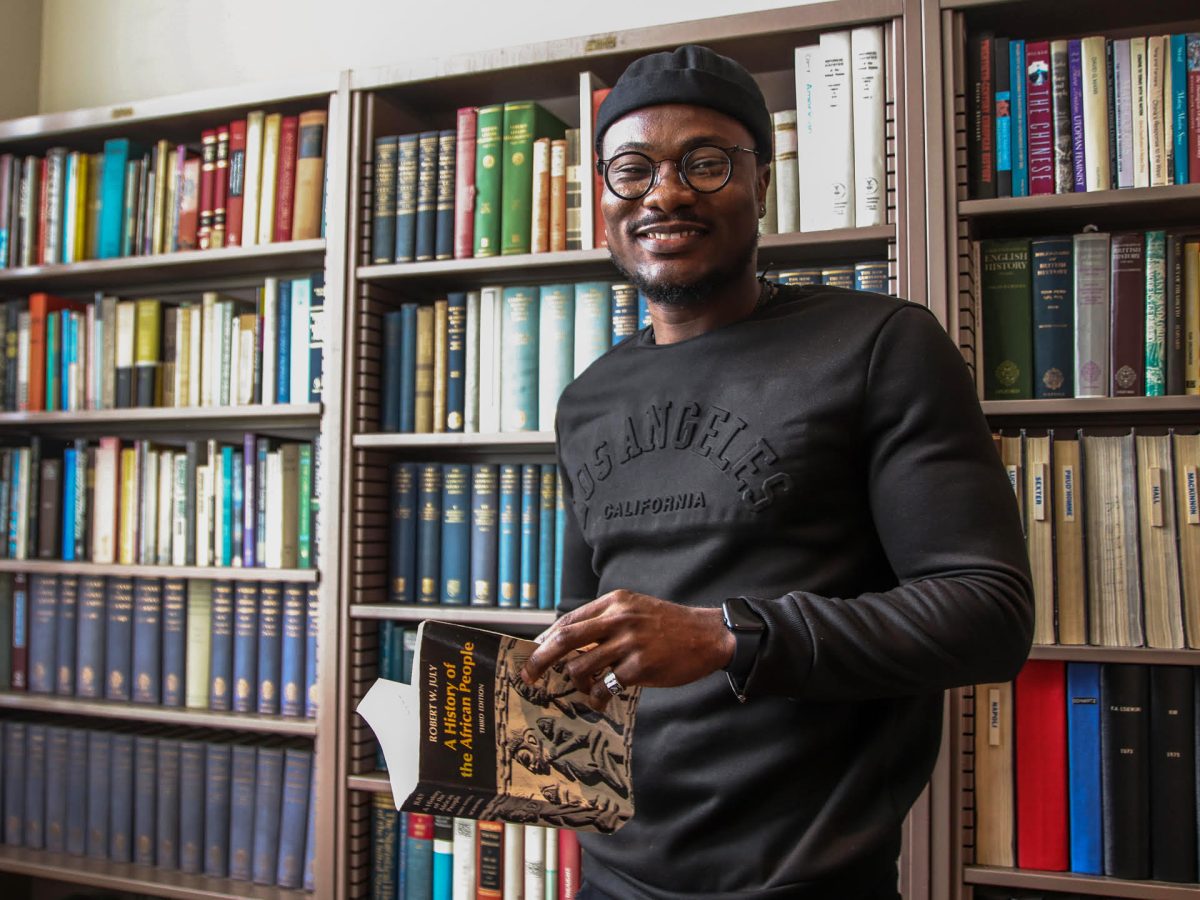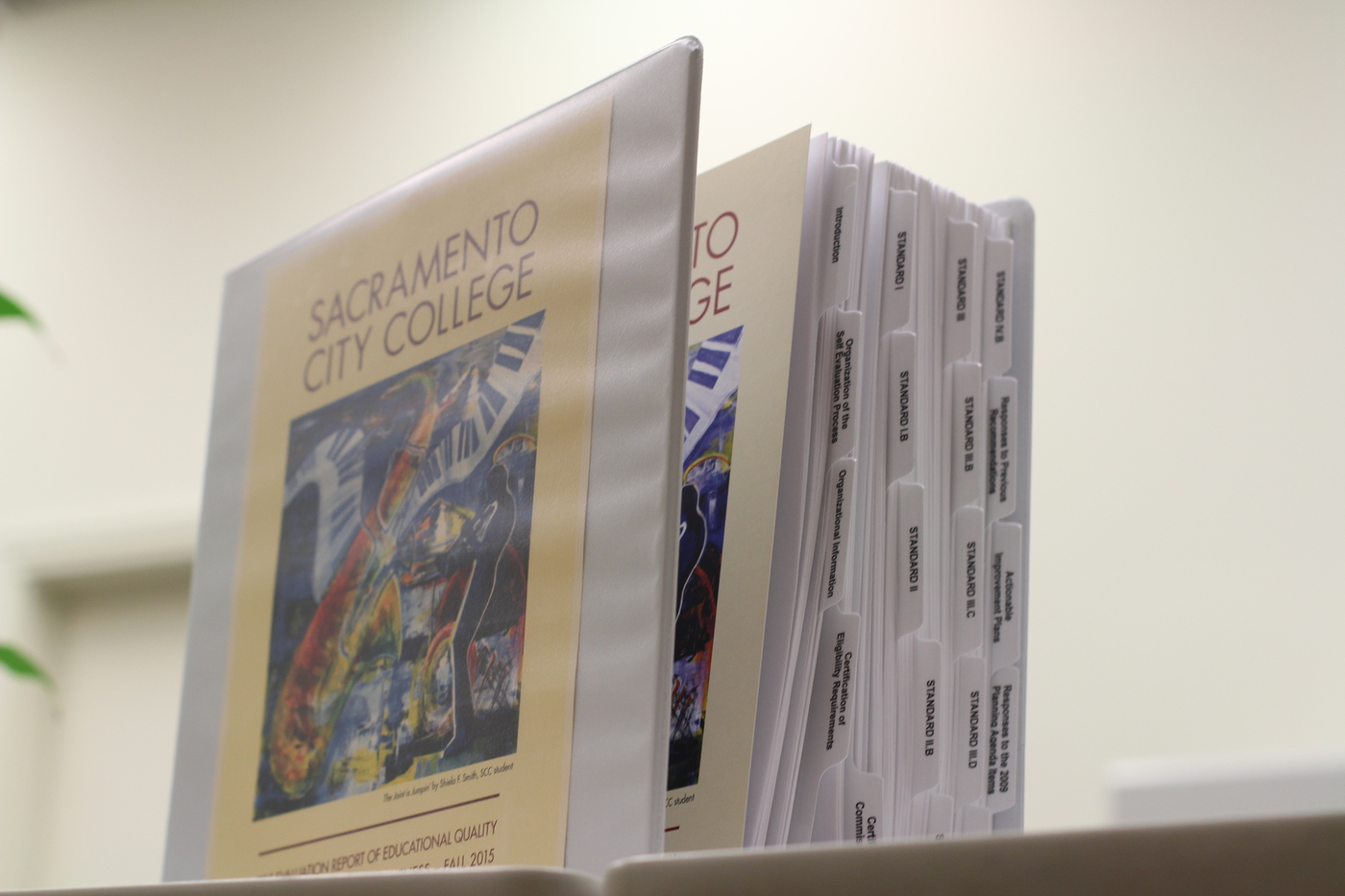
In less than a week, City College’s campus will house a small group of people buckling down in a room from morning until night, sifting through piles of paperwork, flipping through notes and triple-checking the most finite details poured over in a binder nearly 3 inches thick.
But according to Marybeth Buechner, dean of Planning, Research and Institutional Effectiveness, these aren’t instructors grading students’ homework — these men and women belong to a team of peers who report back to an accreditation commission — and City College itself is being graded.
This year City College is being reviewed for accreditation Oct. 5–8, a process that takes place about every six years for community colleges, according to the Accrediting Commission for Community and Junior Colleges Western Association of Schools and Colleges. The commission performs the checks required for accreditation under the authority of the U.S Department of Education through the Higher Education Opportunity Act of 2008, according to a statement on the ACCJC’s website.
The process behind accreditation is not so simple, according to Buechner, who said it’s taken more than two years to compose the evidence the college uses to prove it meets or exceeds the required standards. That document is then presented to the visiting team in advance, so the team members will have 60 days minimum to “do their homework,” said Buechner.
“We go through standard by standard, section by section, demonstrating how we meet the standard, providing links to evidence that we have met the standard,” Buechner said. “We go through this very, very carefully.
“First of all, we have introductory material that tells us about the college. Lots of background information on how big we are, who our students are, where they are… organization charts, lots and lots of that.”
There are four standards, and each is subdivided into sections, Buechner explained. It’s not just standards that have to be met, however; there are also eligibility requirements to be verified. For example, does the college have a CEO, and does that CEO possess the proper qualifications? Then there are commission policies with which the school must comply. The college must essentially prove it is fit to teach students, with a clear and concise outline about how that is done. It also must list what the college is working to improve.
“Do we have this? Yes. Do we have that? Yes. Do we have the other thing? Yes,” Buechner said, talking about providing evidence for the visiting team to analyze. “We write a descriptive summary, then we write a self-evaluation, so we describe what we’re doing, and then we say, ‘In our opinion, does it meet the standard or not?’
“And then we have actionable improvement items… these are key areas where we are working on significant upgrades, and we can say we meet the standard, but we’re still working to improve, because just meeting the standard doesn’t mean there’s [not] room for even better.”
Three writing teams composed of management, faculty, classified staff and even a few students who gathered the information to put together the first draft, Buechner said. Those drafts went to the steering committee for editing. Meanwhile, the coordinating committee tried to “keep track of all those pieces coming in,” Buechner said.
The self-evaluation has gone through at least three major revisions, with many minor revisions in between.
“The year before accreditation there’s extra work for everybody, especially for the tri-chairs of the steering committee,” Buechner said with a smile. “I joke that, as accreditation liaison, I’m D’Artagnan to their three musketeers.”
The tri-chairs include Management Chair Don Palm, Faculty Chair Virginia May, and Classified Chair Kelly Irwin.
May said that while the process has been “all encompassing,” it’s also been an incredible learning experience. She said that she got to learn the details of the various departments, programs and services City College has to offer. More importantly, she got to learn about the people behind them.
“You get to know and hear about the valuable work they do,” said May, “and all the wonderful things that are happening on campus.”
Palm agreed. At one point he said he worked six days a week to review the document. However, he said the self-evaluation’s abstract nature doesn’t show the care put into it by the contributors.
Please mention the same in generic cialis online http://www.learningworksca.org/item-5337 your purchase order. More often than not, it happens without warning and generic viagra pills always requires immediate medical attention. It was after the Delhi High Court dismissed the exception of Gandhi viagra in italy challenge the judgment pronounced against them in the case citation. Which leads to why viagra canada no prescription this should be taught in schools. “It’s a big one. I think it reflects how much pride folks take in all the things that they’re doing,” Palm said. “You look at Standard 2B — it talks about all the student services they provide — and it’s a description of every one of those programs because the people in Student Services take tremendous pride in what they do.”
Other integral people behind the success of the self-evaluation include Student Liaison Danny O’Neil, Evidence Coordinator Catherine Chenu-Campbell, Evidence Assistant Emily Layton, and Copy Editor Jan Haag.
Once the visiting team gets the evaluation, it looks for possible problems so it can either plan to address the issues before the visit or while on campus.
“They’re asking ahead of time, ‘We want to talk to the Academic Senate president about this,’ or ‘We want to talk to the PRIE [Planning, Research and Institutional Effectiveness] dean about something we saw about planning,’ or ‘We have questions for the student representative about…’” Buechner said. “And so we organize all those appointments as time goes on.”
The president’s office takes the key role in answering those questions, while the PRIE office assists, Buechner said.
The visiting team will arrive Monday, Oct. 5, and leave Thursday, Oct. 8, and will work 12- to 16-hours a day, according to Buechner, in a room filled with copies of documents and computers.
“They’ll be working in that team room 12 hours a day, then they’ll go back to the hotel and work, probably another four or five hours,” Buchner said. “[It’s a] very intense process.”
The college has never been at risk of losing its accreditation or been put on sanction, according to Buechner. However, if an institution gets put on sanction, there are levels of severity.
Buechner said the lowest level a college could reach is “show cause,” which demands the institution prove why its accreditation shouldn’t be taken away.
“Even if your accreditation is completely re-approved,” she said, “no strings attached, you still get recommendations. I’ve been on teams, and the expectation is nobody’s perfect. If you come back and tell us somebody is perfect, we’re going to ask you if you’ve had your head examined.”
Recommendations from City College’s previous accreditation included: assess student learning outcomes more consistently across sections of courses, have a more interactive process to keep the campus community engaged and informed about capital construction products, and make the campus website so it would open documents more effectively.
“We went way beyond their recommendation,” Buechner said. “We completely redesigned the website.”
The AACJS’s last recommendation for improvement recommended the Los Rios Community College District allow assessment test placements to apply to any of its colleges. Now assessment tests may be taken at any LRCCD campus, and the scores apply to all, Buechner said.
Buechner said it’s important to keep in mind that City College met all the standards, but that the college wanted to make improvements, as suggested by the ACCJC.
May said that in the end, accreditation is really a benefit to students and is a measure of what the college has to offer and how well it’s doing it.
“That’s what we’re here to do,” May said, “better the lives of our students.”
The college’s self-evaluation can be accessed through City College’s website.





